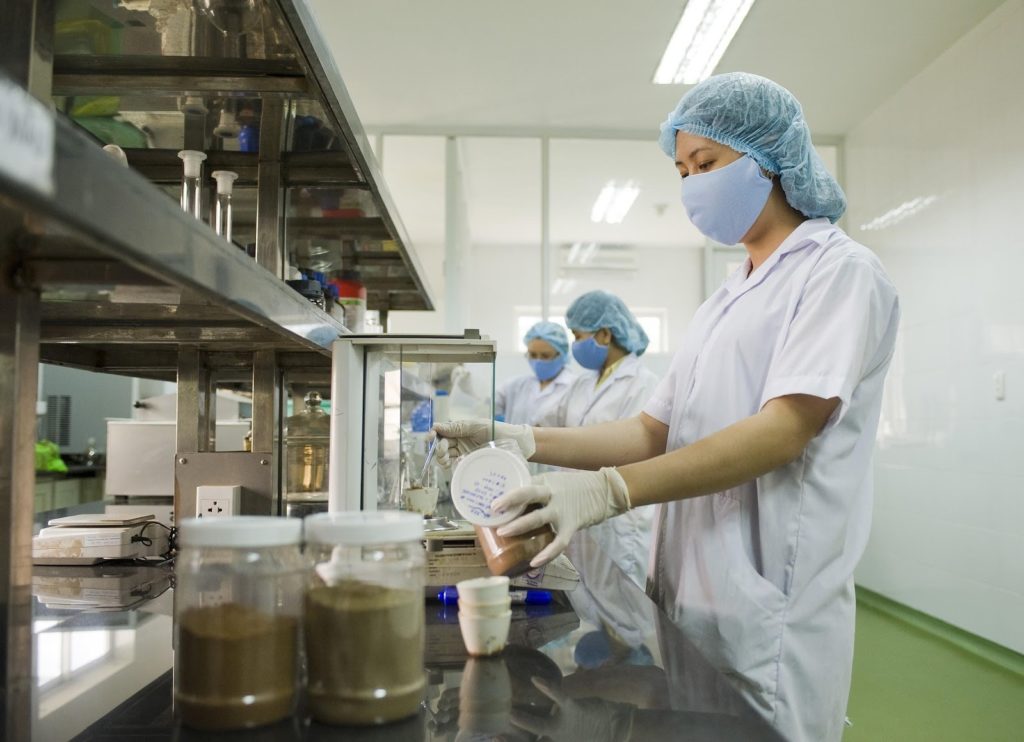Donec ullamcorper nulla non metus auctor fringilla. Vivamus sagittis lacus vel augue.
Nice button to linkWith the Nedspice Farmers Partnership Programme (NFPP), we encourage farmers to make their cultivation practices more environmentally, economically and socially sustainable. Not just for our benefit, but mostly to future-proof their own livelihood. Running a small farm isn’t easy, especially with global trends that demand faster, cheaper and larger food production. Many young farmers leave agriculture to try their luck somewhere else. Those that remain are pressured into high-intensive agriculture, which promotes the use of chemical fertilizers, herbicides and pesticides. This negatively affects soil fertility and harms the health of local communities.
The Nedspice Farmers Partnership Programme invites farmers into a financially attractive and long-term partnership. Through training and on-farm support we help to develop sustainable and profitable farms, that produce high-quality and safe spices. Currently, 3616(!) farmers from Vietnam and India have joined NFPP.

Our business activities include sterilization, grinding and distribution of single spices and herbs like black and white pepper, ginger, turmeric, nutmeg, cumin, cloves, cassia, cinnamon, parsley, basil, marjoram, dill, tarragon, onion, leek, carrots, tomato, bell pepper, garlic.
The Sustainable cumin program was started as part of the Nedpice Farmers Partnership Program in Rajasthan state, India. The project takes place in four villages, with 44 farmers and a collective 440 hectares of land with a production of 300 MT in 2013/14.
The overall aim is to encourage farmers to make cultivation practices more economically, socially and environmentally sustainable, integrate producers into long-term cooperation with Nedspice’s value chain, and ultimately to provide good quality cumin to meet increasing customer demand. This demand will improve productivity, which increases farmers income and thereby contributes to the improvement of their livelihoods.
The farmers are also introduced to efficient watering techniques and taught how to release less nitrogen into the atmosphere, which will improve their living conditions and reduce investment costs. Finally, farmers will receive a price premium from Nedspice.
This project was successfully implemented with Nedspice sustainable agricultural principles and Sustainable Supplier status under USAC, which was obtained in 2014.
For the last four years we have been expanding our cumin project. Links with farmers have been established in 34 villages in Rajasthan. The cumin program was scaled up to 400% in just three years, covering 4400 hectares (total output during 2016 was 1200 tons, expected to increase to 1500 tons in 2017). By introducing high-end IT technology, effective training sessions and thorough validation of field trials, we will focus on improving efficiency and consistency. The majority of the output produced by these farmers meets EU and USA criteria for pesticides and allergens.

Our business activities include sterilization, grinding and distribution of single spices and herbs like black and white pepper, ginger, turmeric, nutmeg, cumin, cloves, cassia, cinnamon, parsley, basil, marjoram, dill, tarragon, onion, leek, carrots, tomato, bell pepper, garlic.
During Q4 of 2012, Nedspice started to implement the first phase of its long-term sustainability strategy for pepper. This first step entailed working with a group of 700 farmers in Binh Phuoc province, Vietnam, to produce 1000 tons of sustainable pepper.
A team of locally situated agronomists and buyers was put in place and a buying station was established in Loc Ninh in Binh Phuoc Province. Local schools, in Loc An and Loc Hiep were refurbished.
Nedspice teamed up with SNV, a Dutch non-governmental organization, to set up training programs and work with the farmers. With all the experience gained, we hope to establish similar projects in other regions in Vietnam as well.
As part of the Sustainable Spices Initiative, Nedspice also developed a sustainability standard for pepper in Vietnam, together with Rainforest Alliance. This standard is based on the famous SAN standard (Sustainable Agriculture Network).
The Sustainable Agriculture Network (SAN) promotes efficient agriculture, biodiversity conservation and sustainable community development by creating social and environmental standards. SAN fosters best management practices across agricultural value chains by encouraging farmers to comply with SAN standards and by motivating supply chain participants and consumers to support sustainability.
This project was successfully implemented with Nedspice sustainable agricultural principles and Sustainable Supplier status under USAC, which was obtained in 2014.
For the last four years we have been expanding our cumin project. Links with farmers have been established in 34 villages in Rajasthan. The cumin program was scaled up to 400% in just three years, covering 4400 hectares (total output during 2016 was 1200 tons, expected to increase to 1500 tons in 2017). By introducing high-end IT technology, effective training sessions and thorough validation of field trials, we will focus on improving efficiency and consistency. The majority of the output produced by these farmers meets EU and USA criteria for pesticides and allergens.
The objective of the Sustainable Agriculture Standard is to provide a measure of each farm’s social and environmental performance and agricultural management practices. Compliance is evaluated by audits that measure the degree of the farm’s conformity to environmental, social and agricultural practices indicated in the standard criteria.
The sustainable agriculture standard consists of ten principles. Each principle is made up of criteria. The criteria describe good practices for social, environmental and agricultural management, and are evaluated by the certification process.
The 10 principles can be listed as follows: Social and Environmental management system Ecosystem conservation Wildlife protection Water conservation Fair treatment and good working conditions for workers Occupational health and safety Community relations Integrated crop management Soil management and conservation Integrated waste management
![]()
![]()
![]()